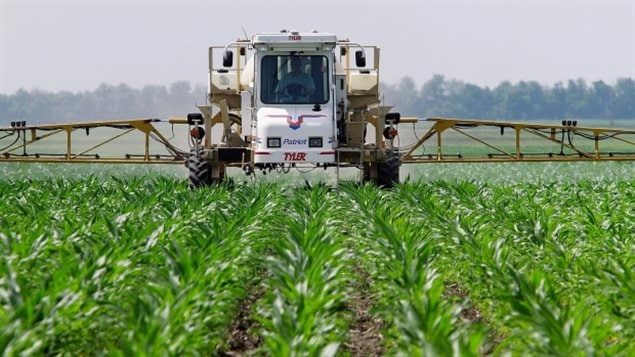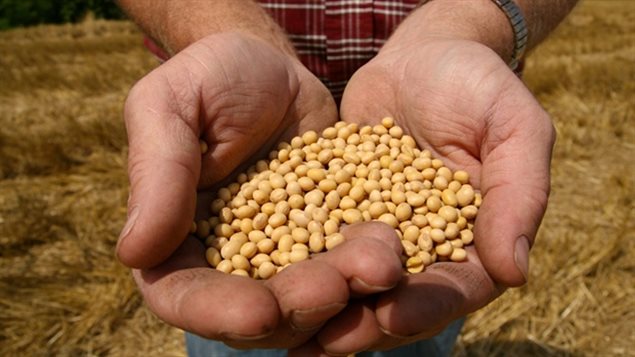One of the biggest corporate mergers has elicited strong protest around the world.
Bayer and Monsanto, already each a giant, are asking to merge into one multi-billion dollar mega corporation of pharmaceutical chemical, genetically modified seed giants.
Many see the merger as a threat to farmers and the food supply itself.
Jan Slomp is a beef cattle farmer in British Columbia, and president of the National Farmers Union.
Listen
Recently a petition containing one million signatures to the U.S. Department of Justice calling on the agency to block the merger.
A year ago when the $66 billion deal was first proposed a press release said, “”significant and lasting benefits for farmers: improved sourcing and increased convenience to higher yield, better environmental protection and sustainability”.
This merger came on the heals of two similar mega mergers in the industry. A $130 billion deal saw Dow and Dupont merge and another $43 billion deal between ChinaChem and Sygenta.
The combined mergers would mean three mega companies would control about 70 per cent of the world’s agrochemicals and over 60 per cent of commercial seeds.
Jan Slomp says that already seed prices for farmers has increased dramatically, meaning costs passed along to consumers.
In addition he says these giant companies have been actively suing farmers found to have their genetically modified plants in their crops even when their genetically modified seeds or pollen was blown from neighbouring fields and not specifically planted.

He says on the one hand giant commercialization is limited the varieties of seeds available to farmers, and on the other the lawsuits create a chill pushing farmers to buy GM seeds simply to avoid legal issues, thereby further limiting varieties available to consumers, and increasing corporate control over the food supply by creating a dependence on these companies.
He also says that because of limited seed varieties and world wide control, the food supply could be in danger if disease was to attack the limited varieties.
While there is an anti-trust petition in the U.S, Slomp says he has no hope of seeing official Canadian concern about market domination, citing as an example the merger of two beef slaughtering companies which now controls the majority of that Canadian market.
He says the Canadian Competition Bureau has almost never opposed a merger adding it’s a “paper” organisation and the weakest of its kind he knows of.
additional information
- MarketWatch: E Court: Sep 15/16: merger cost you more
- EU Observer: D Burrows: Sep 19/17: Merger could harm EU food sector
- Guardian (UK): H Lownsbrough: Aug 23/17: Op-Ed- Threat to world food supply
- Bayer-Monsanto “Advancing Together”
- Successful Farming: G Guttickson: Sep 19/17: 8 points about the merger
- National Farmers Union: Sep 19/16: Bayer Monsanto deal







For reasons beyond our control, and for an undetermined period of time, our comment section is now closed. However, our social networks remain open to your contributions.